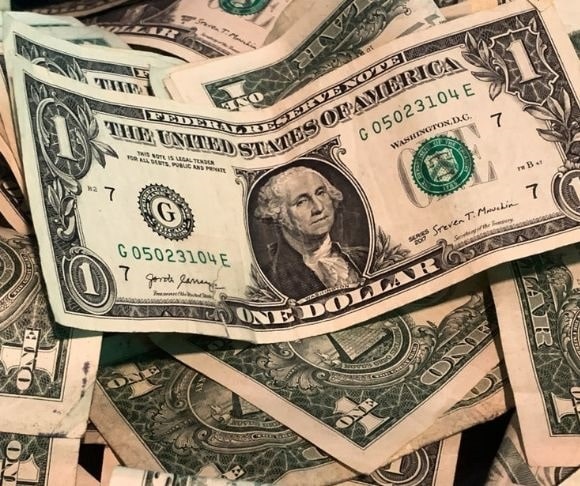During the COVID-19 public health crisis, the United States economy was given a real-time lesson on the advantages and disadvantages of a universal basic income (UBI) program. It turned out that the pandemic-era public policy of something for nothing had grave consequences for the economic landscape, be it the labor market or inflation. Today, the nation is still enduring the consequences of handing out free money to millions of Americans through stimulus and relief checks and sweetened unemployment benefits. Now that the genie has been let out of the bottle, left-leaning officials want to start implementing the same concept on a permanent basis. However, some places believe it is essential first to determine recipients’ skin pigmentation and genitalia before doling out the dollars.
Universal Basic Income for Some
The San Francisco Bay Area, America’s premier progressive oasis, maintains three taxpayer-funded universal basic income programs. Well, perhaps the word “universal” should not be used in this case since these initiatives discriminate against white residents by limiting or restricting their participation.
 The Washington Free Beacon uncovered some details of these programs. The first, which is paid for by the National Institutes of Health, is the Black Economic Equity Movement, a $500-a-month scheme primarily for young black adults. The second is the Abundant Birth Project, a California Department of Social Services program that gives $1,000 a month to black and Pacific Islander mothers. Finally, there is the city’s Guaranteed Income for Transgender People, which offers $1,200 a month for transgender black, indigenous, and other minority residents.
The Washington Free Beacon uncovered some details of these programs. The first, which is paid for by the National Institutes of Health, is the Black Economic Equity Movement, a $500-a-month scheme primarily for young black adults. The second is the Abundant Birth Project, a California Department of Social Services program that gives $1,000 a month to black and Pacific Islander mothers. Finally, there is the city’s Guaranteed Income for Transgender People, which offers $1,200 a month for transgender black, indigenous, and other minority residents.
Legal experts have questioned the constitutionality of these race-based basic income efforts. Some say they violate the 14th Amendment and others argue that they might be breaking federal and state Civil Rights legislation. Liberty Nation Legal Affairs Editor Scott D. Cosenza was asked if there is any basis for these claims.
“Innumerable provisions in state and federal law prohibit treating people differently based on race,” he said. “The Supreme Court has, however, allowed some of these race-based decisions in favor of previously discriminated against groups; a carve-out unsupported by the civil rights acts or the Constitution. That, however, may be changing, and I suspect the Court’s rulings in currently underway cases on racial preferences in higher education will provide guidance, here.”
Meanwhile, other jurisdictions have launched similar campaigns. A guaranteed income experiment for black women was established in Georgia, giving most participants as much as $850 per month for two years. This is in addition to Atlanta’s basic income program that serves 30 residents who live 200% below the federal poverty line.
The Economics of Basic Income
After the US economy started opening up again, employers struggled to find workers. Research has indicated there were several factors for this: many were concerned about contracting the coronavirus, others did not have any childcare options, and a considerable number did not want to work. As a result, inflationary challenges began forming, causing businesses to raise wages and offer better compensation packages to attract and retain talent.
 But this was not the sole cause of inflation. All three levels of government had mailed out stimulus and relief checks to households nationwide, causing two issues: artificial demand and currency debasement. When Democrats and Republicans voted to inject the economy with trillions of dollars, the Federal Reserve swooped in and monetized the deficit-financed spending through money printing and zero interest rates. The public was flush with cash and started consuming like it was Black Friday. At the same time, the idea of not having to work flooded the minds of millions of people everywhere. Of course, when individuals had to head back to the office – at a company or at home – labor productivity numbers cratered. They still have not improved. Despite the paucity of output, companies had to bite their lips and accept it since they needed bodies to get any work done.
But this was not the sole cause of inflation. All three levels of government had mailed out stimulus and relief checks to households nationwide, causing two issues: artificial demand and currency debasement. When Democrats and Republicans voted to inject the economy with trillions of dollars, the Federal Reserve swooped in and monetized the deficit-financed spending through money printing and zero interest rates. The public was flush with cash and started consuming like it was Black Friday. At the same time, the idea of not having to work flooded the minds of millions of people everywhere. Of course, when individuals had to head back to the office – at a company or at home – labor productivity numbers cratered. They still have not improved. Despite the paucity of output, companies had to bite their lips and accept it since they needed bodies to get any work done.
In the end, it was a case of Faustian economics and proof that there is no such thing as a free lunch.
This is critical because imagine if there were a basic income policy that became the law of the land that complimented all the welfare and entitlement programs, from jobless benefits to Social Security. Would anything get done, or would the public stay home and binge on old episodes of Homicide: Life on the Streets?
Inflation Killing Basic Income?
The US may be learning that these inflationary policies ultimately minimize the UBI’s supposed advantages. Cook County, IL, recently launched a two-year government-funded guaranteed payment program to send monthly $500 checks to low-income residents. But reports already suggest that these funds will not be enough to cover skyrocketing prices of food, fuel, and utilities. Then again, the current administration claimed in the early days of rampant price inflation that this was a problem only for wealthy Americans. It is funny how data and reality can eviscerate leftist narratives and progressive endeavors.




